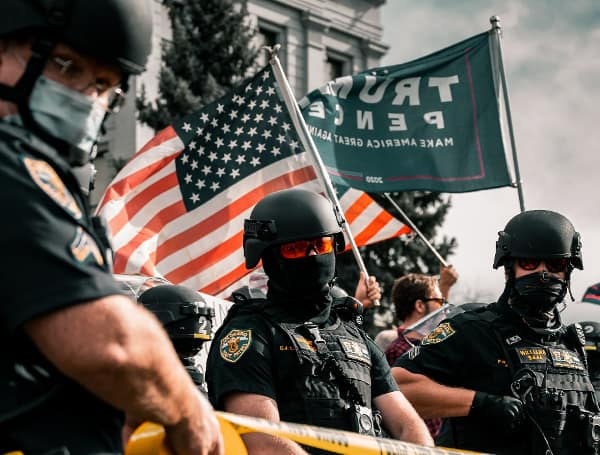
The U.S. Supreme Court delivered a significant ruling Friday that has far-reaching implications for the prosecution of participants in the January 6th, 2021, Capitol riot, as well as former President Donald Trump’s own legal battles.
The nation’s highest court has questioned the federal government’s use of obstruction charges against hundreds of individuals involved in the J6 riot, raising concerns that prosecutors may have overstepped their bounds.
This ruling not only impacts the ongoing cases against the Capitol rioters but also has the potential to affect the prosecution of Trump himself, who faces similar obstruction charges for his efforts to overturn the 2020 presidential election results.
Read: Supreme Court’s Nuanced Ruling Allows Emergency Abortions In Idaho For Now
The justices expressed skepticism over the federal government’s use of the obstruction of an official proceeding charge against Capitol riot participants.
This charge, which stems from a law enacted in the aftermath of the Enron financial scandal, was intended to address the destruction of documents in response to investigations. However, the court questioned whether prosecutors had overextended the application of this statute to the events of January 6th.
Conservative justices, such as Samuel Alito and Neil Gorsuch, appeared most inclined to side with the defense, suggesting that the law was too broad and could potentially be used against even peaceful protests. Meanwhile, liberal Justices Elena Kagan and Sonia Sotomayor seemed more receptive to the Justice Department’s position, arguing that the obstruction charge was a “classic catchall” designed to address the disruption of official proceedings.
The Supreme Court’s decision has immediate implications for the hundreds of individuals facing obstruction charges in the aftermath of the Capitol riot. These charges, which carry a maximum prison sentence of 20 years, have been among the most widely used felony charges brought by federal prosecutors in the massive post-riot crackdown.
Read: Supreme Court Blocks Purdue Pharma Opioid Settlement, Leaving Path Forward Uncertain
Roughly 170 Capitol defendants have been convicted of obstructing or conspiring to obstruct the January 6th joint session of Congress, including the leaders of two far-right extremist groups, the Proud Boys and the Oath Keepers. However, the Supreme Court’s questioning of the use of this charge could lead to a reevaluation of these convictions and potentially result in reduced sentences or even the dismissal of charges for some defendants.
The Supreme Court’s ruling on the obstruction charge also has significant implications for the legal proceedings against former President Donald Trump. Trump is facing two obstruction charges in a separate case brought by Special Counsel Jack Smith, which could potentially be affected by the court’s decision in the Capitol riot case.
While the special counsel has argued that the charges against Trump would remain valid regardless of the outcome in the Fischer case, the Supreme Court’s interpretation of the obstruction statute could still have a bearing on the former president’s prosecution.
Help support the Tampa Free Press by making any small donation by clicking here.
Android Users, Click To Download The Tampa Free Press App And Never Miss A Story. Follow Us On Facebook and Twitter. Sign up for our free newsletter.